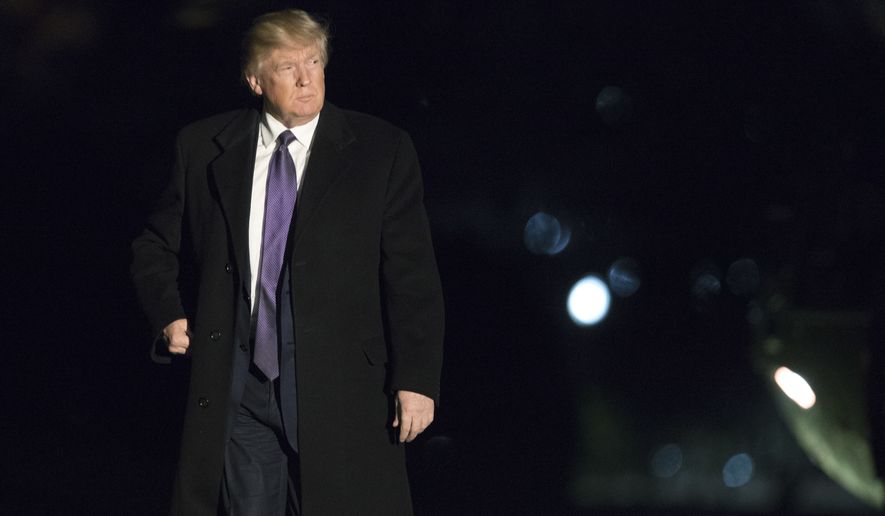The ruling against Trump’s immigration order demands a review
President Trump suggested strongly at the end of a tumultuous week that he might not appeal the 9th U.S. Circuit Court of Appeals decision upholding the trashing of his executive order limiting the admission of refugees from seven chaotic and terror-prone nations of the Middle East.
That’s probably good politics. Mr. Trump says he may start over with another more carefully written executive order. But the 9th Circuit’s decision leaves in place bad law, and deserves a close and careful examination by the U.S. Supreme Court.
The judges of the 9th Circuit, based in San Francisco, are regarded as the least constitutionally reliable of all the appeals judges — their decisions are often reversed on appeal to the High Court, and this decision, reeking of irresponsible judicial vanity, is a real doozy. If the appeals court’s ruling stands unchallenged, it will pose a danger to national security.
The states of Washington and Minnesota, the original plaintiffs, should never have been allowed to bring the suit. David B. Rivkin Jr. and Lee A. Casey, constitutional and appellate lawyers in Washington who served in the White House counsel’s office and at the U.S. Justice Department in the Ronald Reagan and George H.W. Bush administrations, describe in The Wall Street Journal how the 9th Circuit decision violates both legal precedent and the Constitution’s separation of powers.
Under normal rules of “standing,” they write, “all litigants, including states, must meet fundamental standing requirements: an injury to a legally protected interest, caused by the challenged interest, caused by the challenged action that can be remedied by a federal court acting within its constitutional power. This suit fails on every count.”
The three judges of the 9th circuit panel who ruled against the White House brushed aside several precedents supporting the president’s right and responsibility to conduct the foreign affairs of the nation. The Constitution grants Congress power over immigration, and Congress by statute has vested the president with broad authority to “suspend the entry of all aliens or any class of aliens … he may deem appropriate” to protect “the interests of the United States.” Several presidents have exercised this authority to prevent entry of aliens from several countries.
“Under the Constitution and the Supreme Court precedents,” write Mssrs. Rivkin and Casey, “the judiciary is institutionally incapable of analyzing the complicated matrix for foreign-policy determinations that support such actions. Judges lack access — or any right to demand access — to the full range of information, classified and otherwise, available to the president. They also lack the political accountability that would support taking risks with the security of the American people.”
The three judges in San Francisco intruded themselves into a place where they had no business to go. They clearly didn’t know what they were talking about. This decision demands a further review by judges of a higher pay grade. The issue at hand transcends the political interests of the president. The security interests of the United States are paramount, as always, to everything else, and must be so treated.

No comments:
Post a Comment